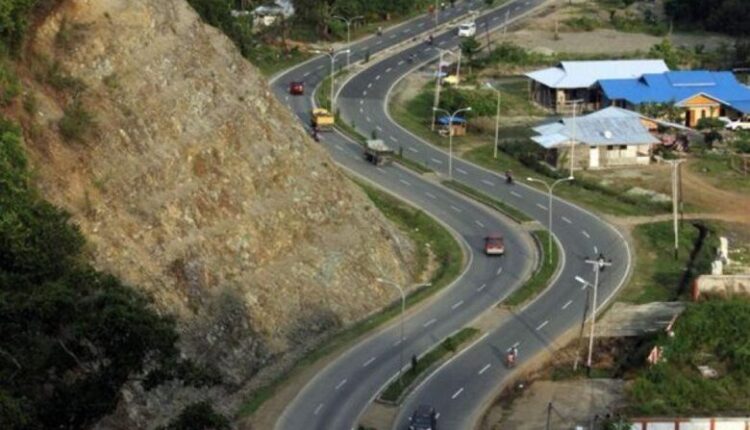Support Jokowi Government’s Real Steps to Realize Social Justice in Papua
By: Ensy Wamena
President Jokowi’s government continues to demonstrate its commitment to realizing social justice in Papua through a series of real and sustainable development steps. With a focus on infrastructure development, local economic empowerment, and cultural preservation, Papua is not only becoming more integrated with other regions in Indonesia, but is also increasingly empowered in managing its natural resource potential.This effort proves that equitable and inclusive development is the key to achieving shared prosperity, especially in areas that have so far been less touched by development.The development of tourist villages in South Papua, especially in Merauke Regency, is not just a physical development program, but also a strategic effort to create broader social justice. Villages rich in natural potential, culture, and local wisdom are the main focus of this plan.By collaborating with local communities, the government hopes to create an inclusive tourism ecosystem, where every element of society can play a role and feel the benefits of sustainable economic development.Deputy Chairperson of the MPR RI, Lestari Moerdijat, in a forum in Merauke Regency emphasized that Merauke Regency, with all its uniqueness and potential, has a great opportunity to be developed into a tourist destination that offers unique experiences for tourists.Current tourism trends show that tourists are no longer just looking for beautiful places, but also authentic experiences that allow them to interact with local culture. Therefore, villages in Merauke with their natural and cultural riches can be the main attraction that is able to compete in the global tourism market.Rerie, Lestari Moerdijat’s nickname, added that the central and regional governments need to have a strong commitment (political will) to develop tourist villages in Merauke. This includes providing adequate infrastructure, training for local communities, and proper promotion so that these villages are known more widely.In addition, community involvement in managing tourist villages is also an important key to ensuring that the economic benefits generated are truly felt by local residents.As part of this grand plan, Merauke is not only relied on for its unique nature and culture, but also for its position as the zero point of eastern Indonesia. The Zero Point of Merauke, known to almost all Indonesians through the patriotic song “Dari Sabang sampai Merauke,” can be a magnet for tourists to come and learn more about Merauke and the surrounding villages.However, the development of this tourist village is certainly not without challenges. Limited infrastructure, difficult accessibility, and lack of skilled human resources are some of the obstacles that must be overcome.This is where the role of government becomes very crucial. In addition to infrastructure support, there needs to be a proactive policy in supporting education and training for local communities so that they are ready and able to manage and develop the potential of existing tourist villages.On the other hand, West Papua also shows strategic steps in advancing the tourism and creative economy sectors. Acting Governor of West Papua, Ali Baham Temongmere, in the 2024 Indonesian Asymmetric Decentralization Forum (Fordasi), revealed that West Papua has extraordinary biological potential, such as high-quality coffee and cocoa, which can be developed as superior commodities.In addition, Ali also highlighted the potential for religious tourism in West Papua, which is the gateway for monotheistic religions in Papua. This potential not only adds to the diversity of tourist attractions in West Papua, but also strengthens the spirit of nationalism through the spiritual power in the area.Technological innovation is also one of the focuses of the West Papua government in supporting sustainable development. The development of the SAIK+ Application System carried out in West Papua, for example, is an effort to improve data accuracy in villages and sub-districts.This more accurate data is very important to support government administration, development planning, improving basic services, and regional economic development. Thus, local governments can formulate more targeted policies and ensure that the development carried out really provides benefits to the community at the grassroots level.Not only that, licensing services in West Papua have also improved through the One-Stop Integrated Service (PTSP) which implements e-Pace, an electronic licensing system that is expected to speed up the licensing process and facilitate investment.With the licensing process becoming easier, it is hoped that there will be an increase in investment in West Papua which will support local economic growth and open up new jobs for the local community.Concrete steps taken by the government in developing Papua, both in the fields of tourism and the creative economy, are important efforts in realizing more equitable social justice throughout Indonesia.Collaboration between the central government, regions, and local communities must continue to be strengthened to ensure that the benefits of this development can be felt by all levels of society. With a strong commitment and synergistic cooperation, Papua can develop into one of the prosperous and prosperous regions, becoming an inseparable part of the progress of the Indonesian nation. *) Student of Economics and Business, Cenderawasih University (Uncen)
